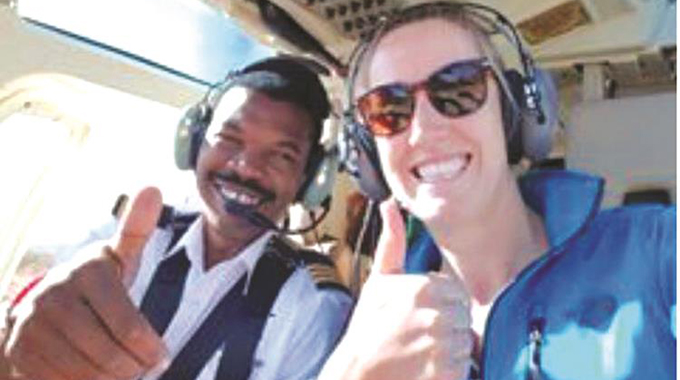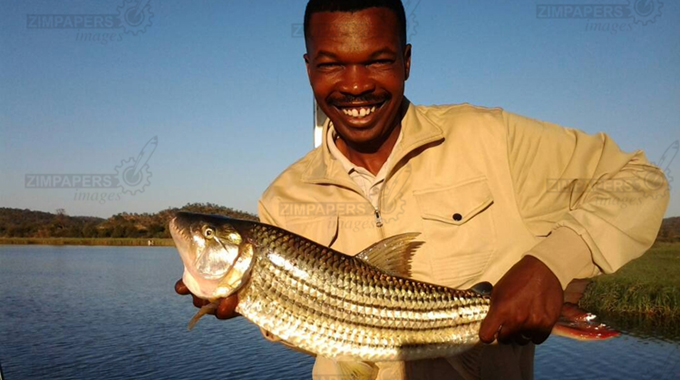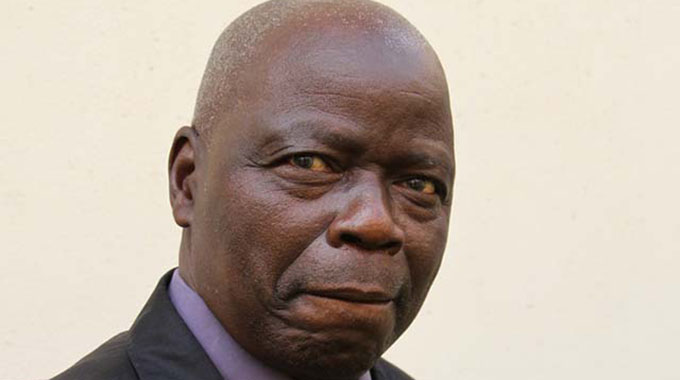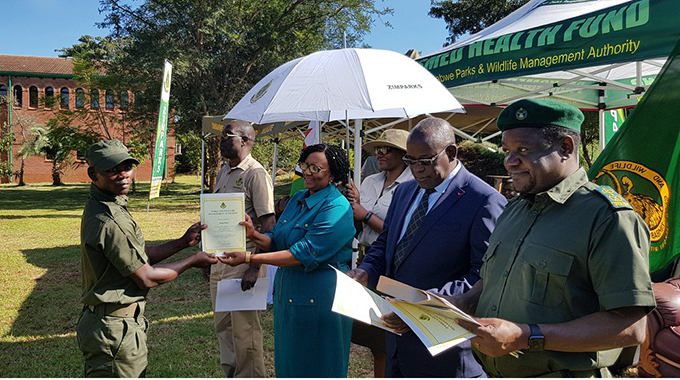Rupiya: Jack of all trades. . . pilot, captain, GM, farmer, fisherman

Clement Mukwasi
A helicopter takes to the sky in breath-taking gaiety, picking its altitude in snuffles serenaded by decibels that change in vocals, tempo and crescendo. Like a majestic eagle, the moustached pilot – cool as a cucumber – makes the helicopter marshal the sky above the Victoria Falls, ensuring that tourists on board get a bird’s view of one of the Seven Natural Wonders of the World.
Unbeknown to the tourists, the pilot Collin Rupiya, is a man of many talents. Off the cockpit, he is an avid fisherman known to forage the Zambezi River and angling for especially, the tiger fish. He also owns two fishing boats and at times he is the captain. Yes, he is certified to drive the boat, too. On land, he is a licenced Class Four driver.

He is member of the Methodist Church in Zimbabwe who does not miss service. But his spiritual mentors are Prophet TB Joshua and Prophet E Makandiwa.
Rupia is also the general manager of Zambezi Helicopter Company, where the matrix of the ever-changing business dynamics call for serious thought process.
What with him also being a mushroom farmer? Well, as for mushroom or toadstool farming as it is known, you really have to understand the world of fungus, and this is crazy stuff.
Rupiya grows oyster and button mushroom through his company Temitope Mushrooms managed by his wife Yvette. The company supplies the tourism industry in Vic Falls, Vic Falls Hotel, Vic Falls Safari Lodge, Three Mokeys Restaurant, OK Mart and OK stores etc
Added to all this, he is a family man and his wife and four children get his attention.
How the hell does he divide his time between all this?
“Well, every aspect of my life needs its time. I switch my mind to each aspect and tell myself, am now in a different space. My mind is used to it, and I apply myself totally to it.
“But one thing for sure, these things keep me occupied and busy. I enjoy my life because my life is not routine and boring. Each aspect has its own challenges and rules. The switch from one aspect to another is what keeps me going,’’ he says.
But how did it all start?

Flash back, in remote Chipinge, a spike-haired boy stands in akimbo under the eaves of grass thatched hut, his bleary eyes squinting to get a glimpse of a passing war plane. It is in Rhodesia and the civil war has reached fever pitch. The planes are criss-crossing to and from Mozambique and the boy dreams flying in one of them.
For a village boy like him, Harare, the nerve centre of governance is too far and unimagined. It is a mirage so dreams will remain dreams.
“I watched the planes again and again with amusement. But imagining piloting them was chasing the horizon. It kept going far and far but time came at the most unsuspecting hour.
“At an age of about 15, I joined a school club ran by former Rhodesian air force pilots called Air Training Corps of Zimbabwe (ATCZ). During school holidays, the children would be driven to Manyame Airbase to see and touch real aircrafts.
“The club targeted young black children from poor backgrounds who wanted to find a niche into the aviation industry. On joining the club, I received several aviation lesson but would not have a chance of flying any machine.
“We would interact with airmen and get more information on what it meant to be a pilot. Back home, the former soldiers would train the children for two hours on every Thursday,’’ says Rupiya.
The motivation and interest grew as reality dawned on Collin that he could actually be in the army if he would get good grades at Advanced Level Mathematics and any Science subjects.
In 1993, Rupiya joined the air force and underwent various courses.
“The first six months were mainly military training. These included artillery training, camouflage and cover, counter insurgency, musketry and many more.
”The other 12 months were directly related to flying. It included obstacle courses, endurance, creativity, aviation law, aviation medicine and principles of flight,’’ he says with a seemingly immortal smile.
Rupiya recalls that at the time of joining the army, it was emphasised that a person with flat feet would not qualify to fly aircrafts. According to the narrative the flat foot reduced one’s agility in the control of aircraft instruments.
“I constantly checked on my foot calf and it brought anxiety and stress as interviews drew nearer.
“I however passed both the physical test and an aptitude test which was meant to measure the alertness and ability to make prompt decisions in difficult circumstances. As part of the first flying experience for many, the instructors would do aerobatics. These included spinning and sudden turns in the sky. A lot of recruits would vomit and get serious nausea as a result.
“I remember my first solo check flight where I was being tested on levels of confidence and skill. All went well and he became an accomplished pilot of both helicopters and fixed wing aircrafts.”
Rupiya started flying war helicopters then VIP helicopters but 12 years down the line, after fighting in the Democratic Republic of Congo war, he left the Air Force of Zimbabwe where he has become a squadron leader and Staff officer (2) Operations.
The Civil Aviation Authority of Zimbabwe examined him and certified him fit to get a commercial helicopter flight licence.
“I was licenced in 60 days and then went straight into the conversion lessons in order to fly a Bell 206. After flying for several hours, an opportunity arose for me be promoted to become the Chief pilot and subsequently general manager.”
“My best moment was flying a helicopter to my birth place in Manicaland to assist in Cyclone Idai rescue. It was an emotional time. Things were bad but I had flown to my place of birth where my dream had started as a boy.”
Today, the Flight of Angels, as the helicopter flights above the mighty Zambezi are passionately known, has become the most popular activity in the resort town after a tour of the rain forest.
“As tourists will be enjoying the meandering gorges of Batoka and one of the widest water curtain in the world, does anyone give a thought to the silent pilot who has seen the falls over and over again in spins of 15 minutes each time? Maybe they think am strange!”
He is a pilot with over 10 000 flying hours to his credit and is currently Zimbabwe’s longest flying black pilot on helicopters.
At his other time, he enjoy fishing, especially the tiger fish on the mighty Zambezi River. What excites him the most is catching the tiger fish.
Upon catching it, the tiger’s initial run is strong and fast and is usually followed by a spectacular leap of one or two metres into the air to shake off the hook, and then a series of deep, determined runs which chew every ounce of strength from this magnificent fish.
Finally after up to 10 minutes of fighting, the tiger fish is pulled, belly-up, to the side of the boat, where it tries to make one or two last breaks to freedom – like a man trying to break from chains – but is gaffed and brought onto the boat.
For moments the fish pants, breathing its last, as the angler smiles in a typical tale of two lives.
“No any other fish is known to put such a brave fight.
Every fishermen is careful when handling the tiger fish, which possesses a ferocious set of razor-sharp teeth enclosed in a bony head that can cause serious harm to the fisherman.
“That is what satisfies me,’’ he says.
At home he spends his time between family and mushroom, giving them deserved attention. Finally even the most gifted of writers, will find it hard to find diction for this man, who is passionate about the land, the water and the air.
Describing his life defies magazine hyperbole. It is real.









Comments